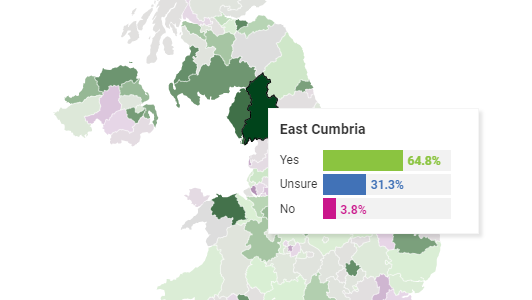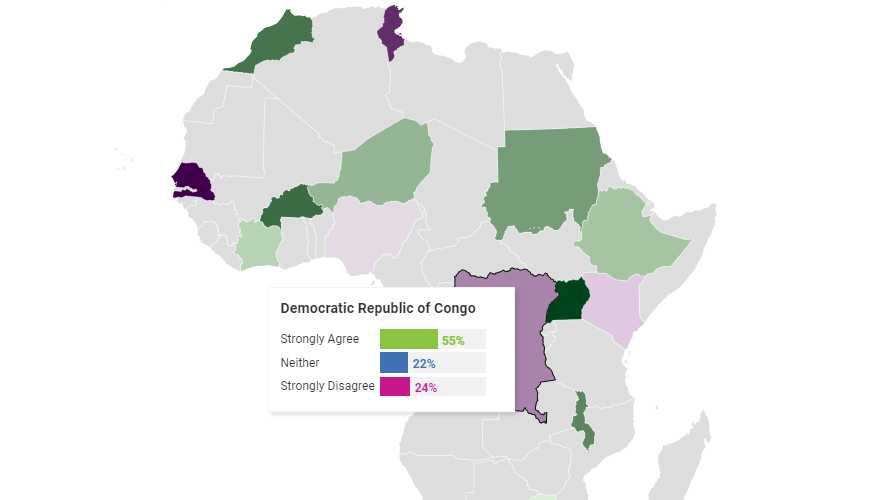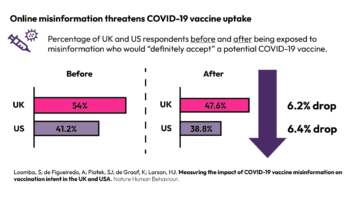We used a mixed-methods approach—involving an online cross-sectional survey and semi-structured interviews–to gain insight into COVID-19 vaccination beliefs, attitudes, and behaviours amongst H&SCWs in the UK.


We used a mixed-methods approach—involving an online cross-sectional survey and semi-structured interviews–to gain insight into COVID-19 vaccination beliefs, attitudes, and behaviours amongst H&SCWs in the UK.

In this study, we explore how intent to receive a COVID-19 vaccine evolved in Nigeria (both nationally and sub-nationally) between March 2021 (when the first vaccines were administered to healthcare workers) and October 2021.

We conducted a large-scale national survey in the UK of 17,611 adults between 9 and 27 April 2021. Bayesian multilevel regression and poststratification is used to provide unbiased national-level estimates of the impact of the introduction of vaccine passports on inclination to accept COVID-19 vaccines.

Between October 31, 2020 and December 15, 2020, 26,759 individuals were surveyed across 32 countries via nationally representative survey designs.

Overview The Vaccine Confidence Project at the London School of Hygiene & Tropical Medicine, in partnership with Premise, developed ASSURE – Assessing Signals and Supporting Resilience.

This mixed-method study aimed to explore the perceptions, confidence levels and decision-making practices…

It is an incredible scientific and collective achievement that we have not just one vaccine against COVID-19, but multiple…

Here we predict uptake of the vaccine at unprecedented spatial resolution across the UK using a large-scale survey of over…

In this study, we predict uptake of the COVID-19 vaccine at unprecedented spatial resolution across the UK.

The aim of this study was to investigate public knowledge and perceptions of both the COVID-19 pandemic itself and COVID-19 vaccine acceptance among adults (aged…

The aim of this study is to investigate public knowledge and perceptions of both the COVID-19 pandemic itself and COVID-19 vaccine acceptance among adults (aged 18 years and above) in 15 African countries.

To inform successful vaccination campaigns, we conducted a randomized controlled trial in the UK and…